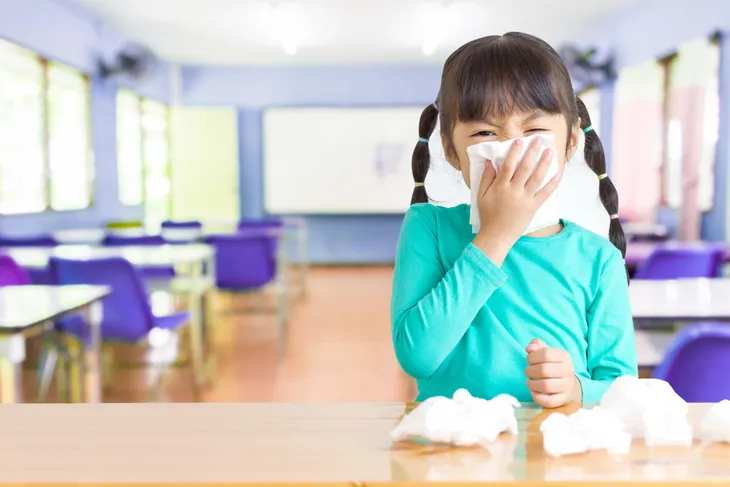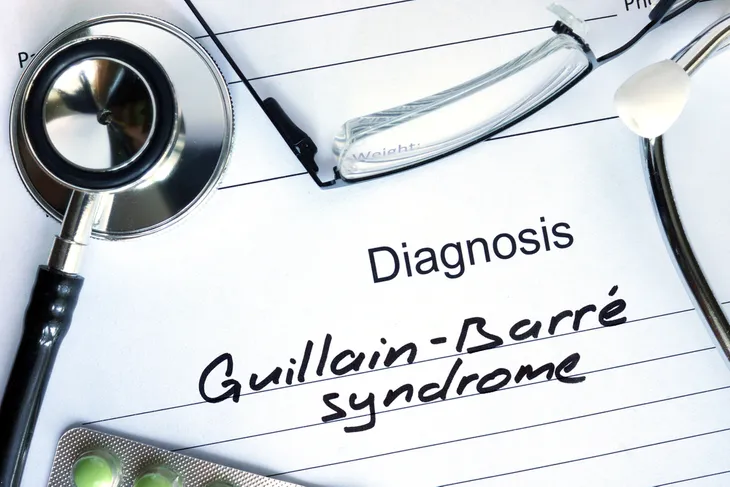Now that kids are back in school, you’ll probably hear more about “the kissing disease” – AKA mononucleosis (or mono), which will affect many people over the course of their lives with varying symptoms.
While in fact mono can be passed through saliva during kissing, there are several other ways an individual may contract the virus, especially in the case of younger children that haven’t discovered kissing (yet). Here are six things to know about the common virus, and what to watch for…
It Spreads Through Other Means Than Kissing
KidsHealth.org notes that mono can be passed through the sharing of eating utensils, drinks, and even from sharing a friend’s lip-gloss or lip balm. Basically, anything that can transfer saliva from an infected person to another person is a risk. It can also be spread through saliva or mucus from sneezing or coughing.
Often, the child that has mono may not even know it, so they may feel inclined to share without realizing they’re putting someone else at risk, notes the source. This brings us to our next point, about the incubation period for the virus…
There’s a Lengthy Contagious/Incubation Period
The virus mostly responsible for mono, called the Epstein-Barr virus (EBV), can be passed to others “for several weeks or months during and after the time you are first infected with EBV,” explains WebMD.
Meanwhile, after you’ve contracted mono, it could take 4 to 6-weeks for any symptoms to develop (known as the incubation period), adds the health site. Other sources explain that a person will be the most contagious from just before they notice symptoms, until the symptoms start to dissipate. The virus can re-activate throughout your life and you can become contagious again, says WebMD.
Most People Get The Virus Early in Life
KidsHealth.org says that while about 90-percent of adults have been infected with the Epstein-Barr virus, about 50-percent of kids will have it before the age of 5. Those who have had the virus early on “probably won’t get reinfected because they develop immunity,” notes the source.
The Centers for Disease Control and Prevention (CDC) adds that infectious mononucleosis is most common among teens and young adults (especially college students). It says that “at least” 1 out of 4-teens and young adults who contract the EBV will develop infectious mononucleosis.
There are Varying Symptoms
While some people with the virus may never know it, others who develop full-blown mono can experience fatigue, sore throat, fever, and headaches, according to the Mayo Clinic.
However, there are some more alarming symptoms that can occur, including swollen tonsils (that can interfere with breathing), a skin rash, and even a swollen spleen. “In extreme cases, your spleen may rupture, causing sharp, sudden pain in the left side of your upper abdomen,” notes the source, adding this is a medical emergency. Mono can also cause liver issues, anemia, and even heart problems, it adds.
There Are No Medical Remedies
WebMD says that there are no medicines or medical treatments that will speed up your recovery from mono symptoms. “Self-care is usually all that is needed if you have mono,” it explains. However, you will receive a medical intervention if you develop one of the more serious symptoms previously mentioned.
Rest is very important to recover from mono, so you may want to clear your schedule for a bit – symptoms will gradually improve over 2 or 3-weeks, adds the source. “Let your symptoms be your guide,” says WebMD. “You may need to adjust your school and work schedule to take advantage of times when you feel more energetic”. Throat lozenges and gargling with salt water can ease your sore throat, it adds.
There are More Serious Diseases Related to the Virus
The Epstein-Barr virus that is responsible for most cases of mono have been tied to other more serious health issues. A post on the U.S. Library of Medicine calls infectious mononucleosis “generally self-limiting,” but it adds that in very rare conditions the virus can cause “severe or fatal conditions” including hemophagocytic lymphohistiocytosis, characterized by overactivation of certain immune cells that lead to inflammation and organ damage.
The source says other chronic EBV-associated diseases include Burkitt’s lymphoma, and Hodgkin lymphoma, both of them types of cancer. Meanwhile, sources note that Guillain-Barré syndrome, a potentially debilitating autoimmune disorder, has also been linked to the Epstein-Barr virus. “The number of chronic life-threatening diseases linked to the EBV infection is increasingly reported and many of these diseases have a poor prognosis,” explains the post.









